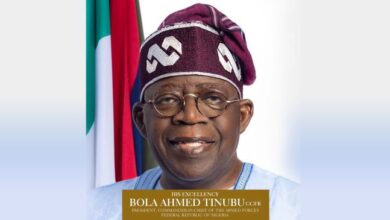$1trn Economy: How achievable?

By Simon Akoje
With a staggering population of over 200 million people, Nigeria is assumed to be one of the most economically favoured countries.
Understanding this, the country is using the same as a connector to harness its economic potential for growth and prosperity.
The road to the jaundiced economy, according to experts in economic matters, has been a product of ineptitude of the political leaders but for a few whose regimes attempted to raise the status above ground zero.
How Tinubu can grow Nigeria to trillion-dollar economy – PAAC
But the Bola Tinubu-led administration has promised, right from inauguration, assured of the revival of the economy and did not pretend about it, especially the desire to move the country’s wealth to one trillion dollars before the end of the decade.
The optimism is, however, based on the various revival platforms initiated at the inauguration one year ago when the president was sworn-in on May 29, 2023, at Eagle Square, Abuja.
In his inaugural speech, Tinubu raised the hope of the teeming populace that the new administration plans to ‘’remodel’’ the ‘’economy to bring about growth and development through job creation, food security and an end to extreme poverty’’.
This, he noted, would be achieved by tapping the potentials for the advantage of the people.
Thus, the new government initiated bold steps as part of its economic reform programmes which include removal of petroleum subsidy and unification of the various foreign exchange windows.
This, the Tinubu-led administration to attract private capital and leapfrog the economy.
But an economic lobby group, the Manufacturers Association of Nigeria (MAN) believes that for the country to fast-track the actualisation of one trillion dollar economy, there is need for the apex bank and the Central Bank of Nigeria (CBN) to develop a sustainable framework.
According to the association, it will also help to channel credit interventions into the manufacturing sector outside the bank direct interventions.
To Agusto and Co, a Nigeria credit rating company, sees the plan to attain a one trillion dollar ECONOMY Gross Domestic Products (GDP) by 2026 as a tall order.
Its position comes soon after Nigeria’s recent downgrade from the 1st to the 4th largest African economy by GDP, according to the International Monetary Fund.
Mr Okechukwu Unegbu, a former President of Chartered Institute of Bankers of Nigeria (CIBN) said that to attain the one trillion dollar economy size, the government should ensure macro-economic stability to attract Foreign Direct Investment (FDI) into the Nigerian economy.
While pleading with the government to improve the nation’s fiscal revenues to address developmental challenges associated with attaining a trillion dollar economy, the financial expert suggested the revenue generating agencies of government must seal all leakages through system automation to entrench transparency.
Another major solution, according to him, is government’s urgent attention to infrastructural renewals to open upp the domestic economy.
Other includes dredging of the various sea port, especially in the Niger-Delta region to facilitate international trade.
Mr Moses Igbrude, National Coordinator, Independence Shareholders Association of Nigeria (ISAN), said that the optimism starts and ends at the president’s desk depending on the determination to pursue the target set by policy makers.
Igbrude said that a blueprint on the modality of archiving the targeted one trillion dollar GDP economic size is needed.
He also said that outlining the various stages of implementation, exportation of cash crops into the global market and growth of the domestic economy, would enhance the country’s foreign exchange, increase reserves and cater for other needs.
”For instance, such programme should be outlined from one stage of development to another to get the support of the people during its implementation,” Igbrude explained
The perspective of Mr Nerus Ekezie, a former Director at National Association of Small and Medium Enterprises (NASME) differed as his narration was based on oil theft and destruction of oil installations in the Niger Delta region.
Proffering solution, he noted that this could be curbed with the installation of modern technological equipment.
If this formula is adapted, then, to Ekezie, “it will enable the government to meet the international oil quota by the Organisation of Petroleum Exporting Countries OPEC and boost our foreign exchange’’.
According to him, the federal government can invest in appropriate data collection to harness the immense prospects of the solid minerals sub-sector, especially in the North Central region where minerals are domiciled and not yet adequately exploited.
“The sector has the capacity to reposition our economy if more emphasis is accorded to its development.
“The establishment of business clusters in the six geo-political zones and adequate budgetary allocation to the Small and Medium Enterprises (SME) sector because of its centrality to the development of any modern society, the nation’s economy will blossom.”
News Agency of Nigeria











